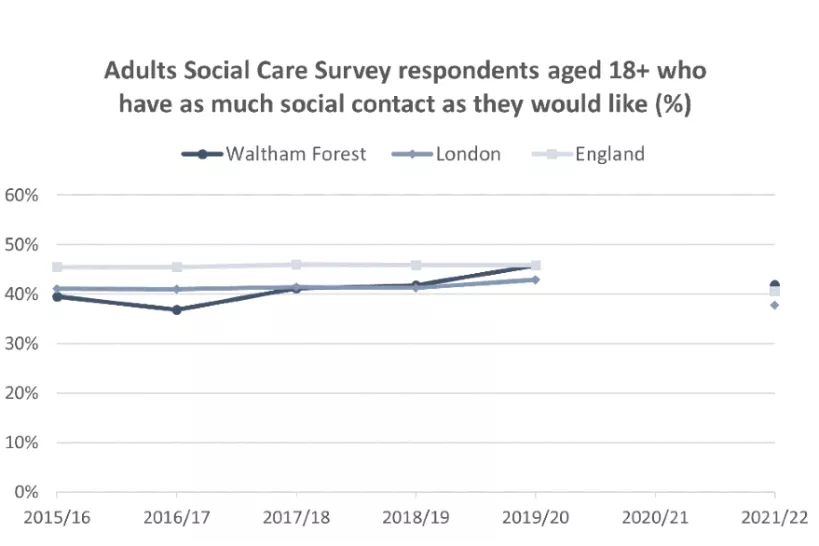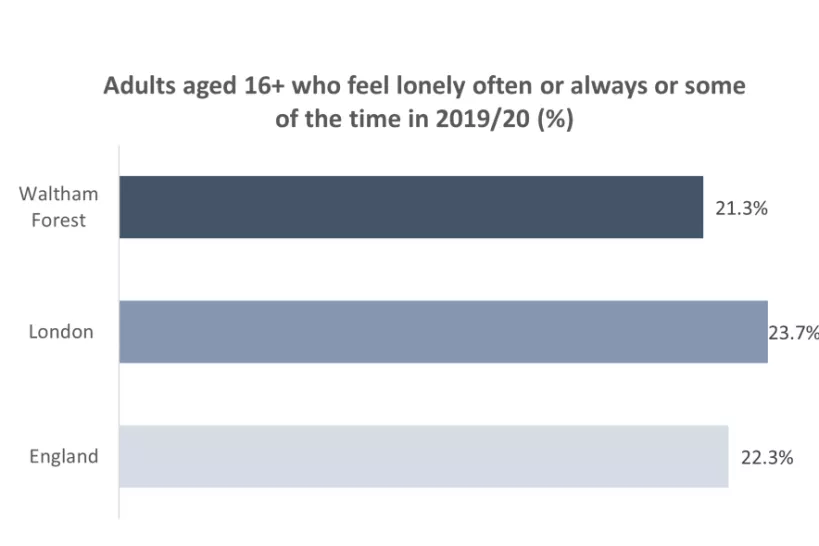Last updated: 20 November 2024
Next review: 20 November 2025
This content is part of the Waltham Forest JSNA. To see other JSNA content, visit the JSNA landing page
There is a clear link between loneliness and poor mental and physical health. Supporting people to remain connected to their communities and to develop and maintain connections with their friends and family are important means of addressing loneliness and social isolation. This measure draws on self-reported levels of social contact as an indicator of social isolation amongst social care users.
According to the latest Adult Social Care Survey in 2021 to 2022, less than half of the service users who responded to the survey in Waltham Forest (41.9%) said that have as much social contact as they would like. This is broadly similar to the national (40.6%) and regional average (37.8%). The COVID-19 pandemic had a significant impact on the collection, processing, and quality assurance of data related to adult social care. As a result, the data for 2020 to 2021 is not available due to data quality concerns.

Source: OHID Public Health Outcomes Framework. Data from Personal Social Services Adult Social Care Survey (NHS Digital). Date accessed: 26 March 2023.
According to the most recent Active Lives Survey in 2019 to 2020, 21.9% of respondents aged 16 and over in Waltham Forest reported feeling lonely often, always or at least some of the time. This was lower than the England (22.3%) and London (23.7%) averages.

Source: OHID Public Health Outcomes Framework. Data from Active Lives Adult Survey (Sport England). Date accessed: 26 March 2023.